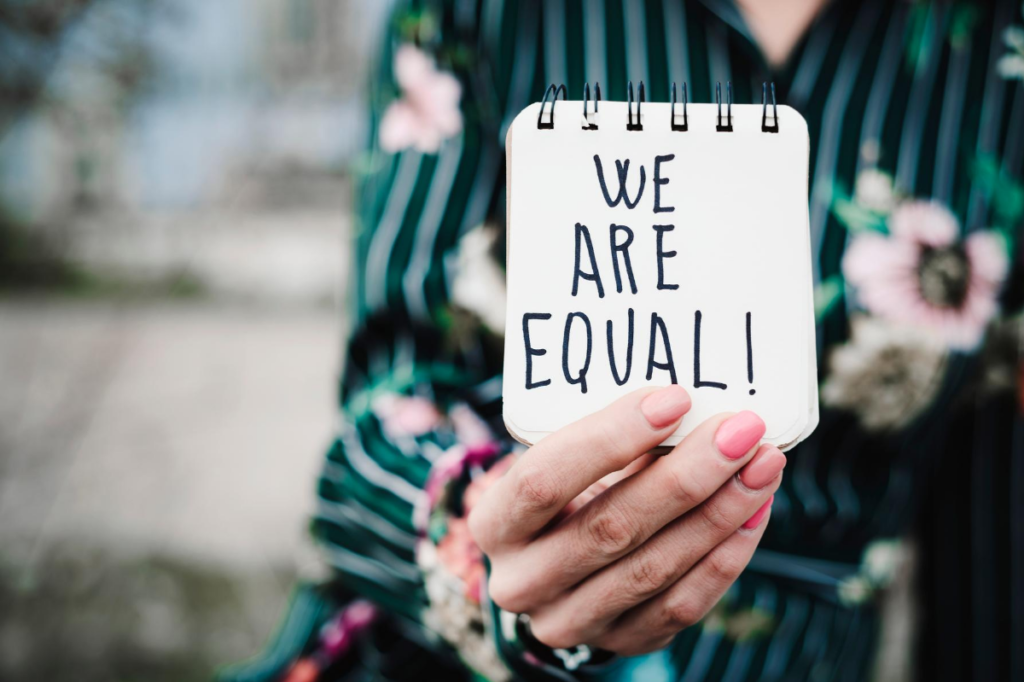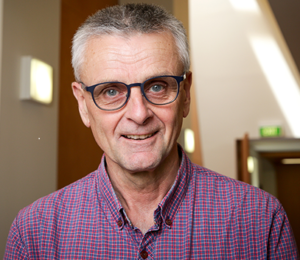
By Rev. Dr (Deacon) Andy Calder
The gospel inspires our Uniting Church DNA and faith into responses of justice and care with vulnerable people experiencing stigma and exclusion (in contrast to the Do Nothing Approach).
Our faith communities and community service agencies aim to be places of welcome and sanctuary and we celebrate many instances of that – sadly though that’s not always the experience of people with disability who have encountered neglect, abuse or discrimination.
Our DNA means we are disturbed by actions and policies that perpetuate division and derision. Division based on gender, wealth, heritage, culture, language and ability - to name a few. We are also disturbed by derision towards people who don’t conform to mainstream expectations of behaviour, appearance or financial contribution (reference language of ‘leaners and lifters’).
The Basis of Union reminds us that the Church is fellowship of reconciliation:
“a body within which the diverse gifts of its members are used for the building up of the whole, an instrument through which Christ may work, and bear witness to himself” (Paragraph 3).
We are called to serve that end and continue the ministry of Jesus in word and deed.
In 2018 the 15th Assembly adopted a ‘Statement of Access and Welcome’ which affirmed:
- Christ is most fully present when all people in the Body are unconditionally accepted as people of worth. All people are created in the image of God, including people with disability;
- along with all members, the faith, gifts, hopes and dreams of people with disability are to be valued and honoured; and
- God is a God of justice and peace, who seeks reconciliation amongst all people.
In seeking to be a community of reconciliation, the Uniting Church acknowledges that for many people with disability its life and faith has not always borne witness to this vision.
The Uniting Church seeks:
- to embody a community life that in its theology and practice is accessible to all people;
- to ensure that within its own life people with disability are treated justly and have their hopes and rights realised; and
- to advocate for justice and equality for people with disability in the wider community.
In 1992 Ms Elizabeth Hastings was appointed Australia’s first Disability Discrimination Commissioner. From birth she lived with the impacts of polio, and the stigma of being initially refused entry in 1949 to Australia under the ‘Ten-pound Pom Scheme’.
As Commissioner, Elizabeth had carriage of the federal Disability Discrimination Act 1991, the DDA; this Act enshrines the protection of people with disabilities from abuse and discrimination, both direct and indirect: related to the provision of goods, services and facilities. It is sometimes erroneously thought that religious communities are exempt from this legislation.
Elizabeth subsequently became the Synod of Victoria and Tasmania’s Manager of the Justice and Social Responsibility Unit until her death in 1998. In its development of successive Disability Action Plans, the Synod has committed itself to the principles and legislation contained within the DDA: seeking to counter attitudinal and physical barriers which exclude, as well as affirming theological positions which seek understanding of what it means to know who God is, and to know what it means to be a human being in relationship with God.
Whilst affirming the need for intentional Action Plans, Elizabeth critiqued the need for terms such as inclusion because all people are included according to God’s grace. She also said tongue in cheek that it might have been a whole lot better if Jesus had not performed quite so many miracles: rather, let people be as they had been created and let them get on with their lives!
Neglect and abuse (physical, sexual, emotional) of people with disabilities can never be accepted. Its pernicious reach has become so widespread that current safeguards and protocols need serious examination and correction to ensure such abuse is eliminated. Enter the current federal Disability Royal Commission (DRC).
The Assembly has established a national Task Group to respond to the DRC. Whilst we continue to examine and critique our current and past practices, including our worship and pastoral care responses, the supports for all people, including those in receipt of the NDIS, need to be protected by the highest of standards.
Uniting Church DNA would also insist on close scrutiny of any proposal by a worshipping community which seeks an exemption under the DDA to limit or exclude people with disability or mental health issues from attending worship on the grounds that certain behaviours are “disruptive to sacred activities”. How many other exemptions might be sought if this was granted? How does this stack up with Jesus’ embrace of the outsider and that in “welcoming a stranger it might just be that an angel is encountered?” (Hebrews 13:2)
Our DNA of justice and compassion ought to celebrate the presence of ‘angels’. As we seek reconciliation, let’s strive to put aside any sense of ‘them and us’, fear of difference, fear of the ‘other’.
This story is from a newsletter of the Growing in Faith Circle which explores Disability and Faith. READ MORE
 Rev. Dr (Deacon) Andy Calder is the Disability Inclusion Advocate for the Synod of Victoria and Tasmania. Andy is the Director of ‘Uniting CPE – the John Paver Centre’ and an Associate Faculty member of Pilgrim Theological College. His recently completed Ph.D. investigated the spirituality of adults with intellectual disability. Andy represents the Synod of Victoria and Tasmania on the Assembly’s Disability Royal Commission Task Group, and chairs that Synod’s Task Group.
Rev. Dr (Deacon) Andy Calder is the Disability Inclusion Advocate for the Synod of Victoria and Tasmania. Andy is the Director of ‘Uniting CPE – the John Paver Centre’ and an Associate Faculty member of Pilgrim Theological College. His recently completed Ph.D. investigated the spirituality of adults with intellectual disability. Andy represents the Synod of Victoria and Tasmania on the Assembly’s Disability Royal Commission Task Group, and chairs that Synod’s Task Group.
